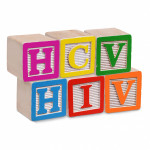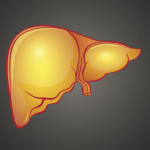Among people with hepatitis C virus (HCV) and compensated cirrhosis (the milder form of the advanced liver disease), HIV coinfection is no longer associated with an increased risk of liver cancer or to a progression to decompensated cirrhosis (the more severe form of the liver disease), according to a new study, Healio reports.
Previous research had led to the common perception that HIV coinfection among those with HCV drove faster progression of liver fibrosis (scarring), which led to higher rates of cirrhosis and decompensation.
Thanks most likely to the advancements of both antiretroviral (ARV) treatments for HIV and direct-acting antiviral (DAA) medications for HCV, this disparity has apparently vanished.
Publishing their findings in the journal Hepatology, a research team led by Dominique Salmon-Ceron, MD, PhD, of the Paris Center University Hospital in France, enrolled 175 people with HIV/HCV coinfection and 1,253 people with HCV monoinfection (meaning they only had that virus and not HIV), all of whom had compensated cirrhosis. The participants were drawn from two prospective French national cohorts, called ANRS CO12 CirVir and CO13 HEPAVIH.
Those with both HIV and HCV were a median age of 47.5 years old at the study’s outset, compared with 56 years among those with just HCV. The proportion of each group that was male was 77.1% and 62.3%, respectively. A total of 80.4% of those with HIV had an undetectable viral load upon entering the study.
The coinfected individuals were followed for a median of 55.7 months while the monoinfected group was followed for median of 59.3 months.
At the study’s outset, 16.6% of the coinfected individuals and 19.9% of the monoinfected participants had been cured of hep C. By the end of follow-up, these proportions had risen to 47% and 52%, respectively. This meant that the two pairs of figures were similar.
After adjusting the data for age, the study authors found that the five-year cumulative diagnosis rates for hepatocellular carcinoma (HCC, the most common form of liver cancer) and decompensation were similar between the coinfected and monoinfected groups, at 8.5% versus 13.2% for liver cancer and 12.8% versus 15.6% for decompensation.
The five-year risk of death from any cause and for liver-related causes were a respective 1.88-fold and 2.44-fold higher among those with HIV compared with those who did not have that virus. However, those with HIV/HCV coinfection developed liver cancer at a younger median age compared with those who had HCV monoinfection, at 52.9 versus 61.8 years old. Coinfection was also associated with more severe cases of liver cancer based on larger tumor sizes.
Factors associated with the combined category of liver cancer and decompensation were age, the lack of an HCV cure and the severity of cirrhosis, but not HIV status.
The persistent health and survival risks associated with HIV were likely related to ongoing injection drug use and heavy consumption of alcohol among those with HIV/HCV coinfection compared with the HCV monoinfected cohort, the study authors hypothesized.
To read the Healio article, click here.
To read the study abstract, click here.







Comments
Comments